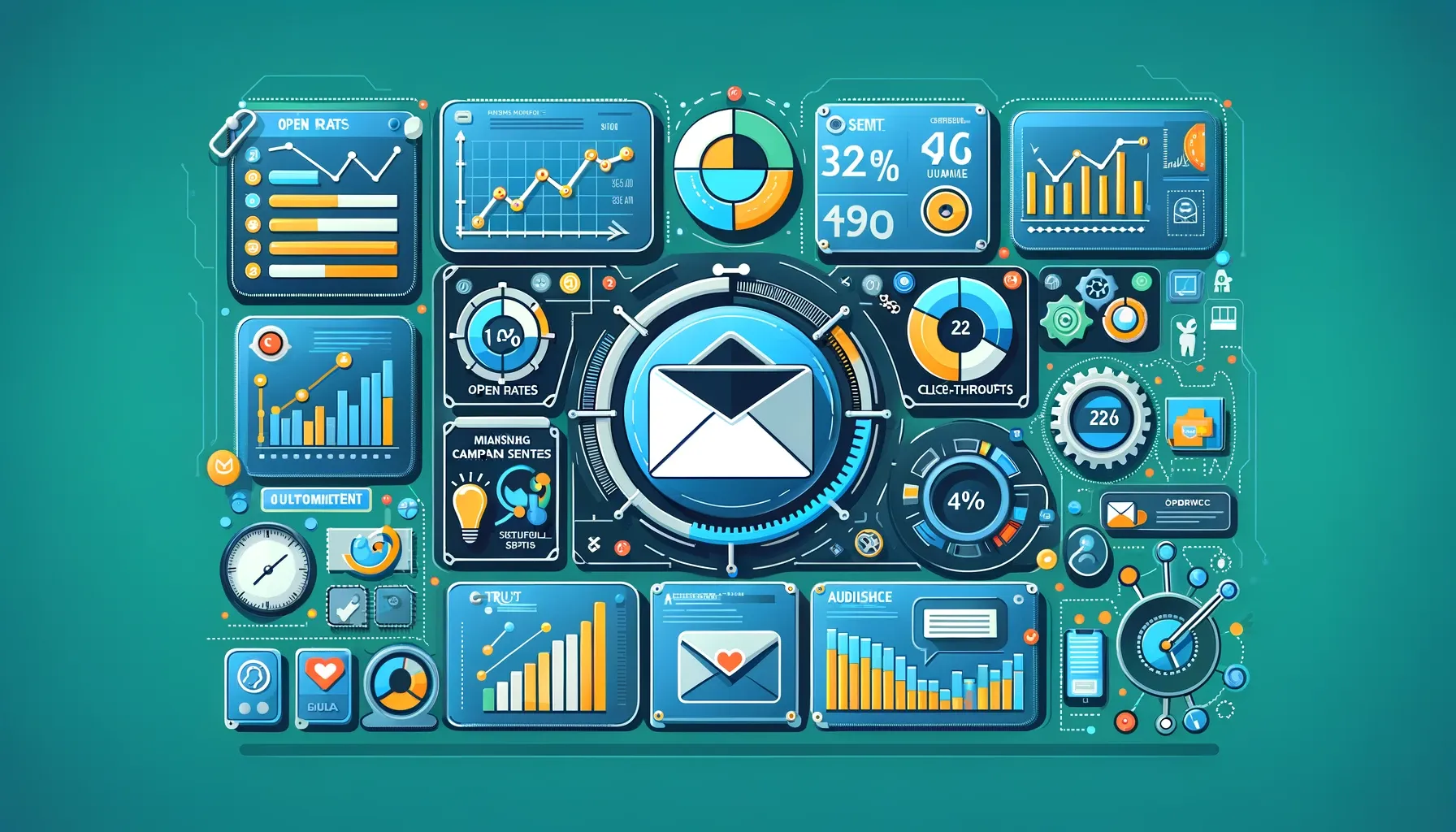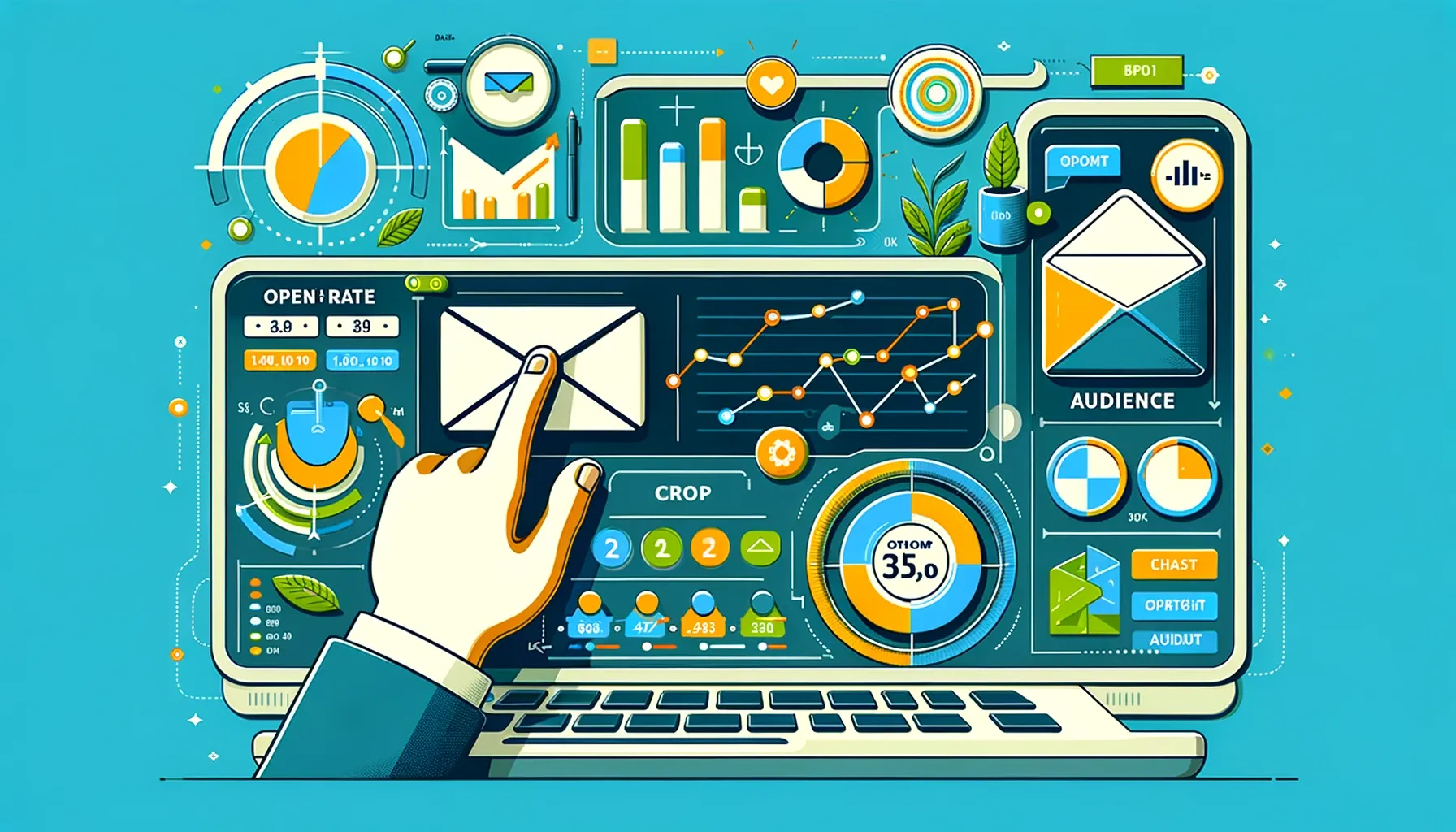A Guide to Email Marketing Campaign Management
Arnav Jalan
Feb 26, 2024
A Guide to Email Marketing Campaign Management
What is Campaign Management and Why is it Important?
Campaign management is the process of organizing, executing, and analyzing marketing campaigns from start to finish. It is crucial for ensuring that marketing efforts are aligned with business goals and executed efficiently.

Understanding the Concept of Campaign Management
At its core, campaign management involves planning, execution, and measurement of marketing campaigns. It encompasses defining campaign goals, identifying the target audience, selecting the right marketing channels, and creating compelling content. Effective campaign management ensures that each campaign reaches its intended audience and achieves its objectives, whether that's increasing brand awareness, generating leads, or driving sales.
The Importance of Effective Campaign Management
Effective campaign management is essential for maximizing the ROI of marketing activities. It enables marketing teams to allocate resources efficiently, leverage data for informed decision-making, and adapt strategies based on performance analytics. Without it, campaigns can lack direction, waste resources, and fail to engage the target audience.
Benefits of Using Campaign Management Software
Campaign management software streamlines the marketing campaign management process, offering tools for automation, scheduling, tracking, and analyzing campaigns. It helps marketing teams manage multiple campaigns across various channels, ensuring consistency and effectiveness. The software also provides valuable insights into campaign performance, enabling teams to optimize future marketing efforts.
Types of Marketing Campaigns
Marketing campaigns can take many forms, each with its unique approach and objectives. Understanding the different types can help businesses choose the most effective strategy for their goals.
Exploring Different Types of Marketing Campaigns
There are several types of marketing campaigns, including email marketing campaigns, content marketing, social media marketing, and lead generation campaigns. Each type serves different purposes, from nurturing leads to boosting engagement or promoting a new product or service. Choosing the right type depends on the campaign goals, target audience, and available resources.
Key Differences Between Digital Marketing and Traditional Marketing Campaigns
Digital marketing campaigns leverage online channels such as email, social media, and websites, offering precise targeting, real-time analytics, and broad reach. Traditional marketing campaigns, on the other hand, utilize channels like print, broadcast, and direct mail, often focusing on a broader audience. While digital campaigns offer more flexibility and tracking capabilities, traditional methods can still be effective for reaching certain demographics.
Utilizing Social Media Platforms for Your Marketing Campaigns
Social media platforms are powerful tools for marketing campaigns, offering access to a vast audience and enabling direct engagement with potential and current customers. They allow for targeted advertising, content sharing, and brand building. Utilizing social media marketing effectively requires understanding each platform's unique features and audience preferences to create relevant and engaging content.
Campaign management is a critical component of successful marketing, enabling businesses to plan, execute, and measure the impact of their marketing activities. By leveraging different types of marketing campaigns and utilizing campaign management software, businesses can enhance their marketing efforts, engage their target audience more effectively, and achieve their marketing and business objectives. Whether through digital or traditional channels, effective campaign management ensures that every marketing activity contributes to the overall success of the business.
Tips for Successful Email Campaign Engagement
Maximizing engagement in your email marketing campaigns is crucial for driving results and enhancing customer interaction. Here are strategies to ensure your campaigns resonate with your audience.
Creating Compelling Content for Your Email Marketing Campaigns
The key to a successful marketing campaign is compelling content. Your email content should provide value to your audience, whether through informative articles, exclusive offers, or insights into your product or service. Tailor your content to address the needs and interests of your audience, making it relevant and engaging. A good campaign leverages storytelling and personalization to connect with recipients on a deeper level.
Segmenting Your Target Audience for Better Engagement
Segmentation is vital in targeting specific groups within your audience with messages tailored to their preferences and behaviors. By dividing your email list based on criteria like demographics, purchase history, or engagement levels, you can create more personalized and effective email campaigns. This targeted approach ensures that your messages are relevant to each segment, increasing the likelihood of engagement and conversion.
Using Marketing Automation to Streamline Your Email Campaigns
Marketing automation software simplifies the process of managing marketing campaigns by automating repetitive tasks. It allows for the scheduling of email sends, segmentation of contacts, and personalization of messages at scale. Automation ensures timely and consistent communication with your audience, freeing up time for your team to focus on campaign strategy and content creation. Additionally, automation tools provide valuable insights into campaign performance, enabling continuous optimization.

The Role of a Campaign Manager in Email Marketing
A campaign manager plays a pivotal role in the planning, execution, and analysis of email marketing campaigns. Understanding their responsibilities and the skills required is essential for campaign success.
The Responsibilities of a Campaign Manager
The marketing campaign manager oversees the entire campaign management process, from initial planning to execution and analysis. They coordinate with different teams to ensure the campaign aligns with the overall marketing strategy and business goals. Responsibilities include defining campaign objectives, audience segmentation, content creation, scheduling, and analyzing campaign performance to identify areas for improvement.
The Skills Needed to Be an Effective Campaign Manager
Effective campaign managers possess a blend of strategic thinking, creativity, and analytical skills. They need to be adept at digital marketing practices, understand multichannel marketing dynamics, and have strong project management capabilities. Excellent communication skills are crucial for collaborating with team members and stakeholders, while analytical skills help in interpreting data to make informed decisions about future campaigns.
Choosing the Right Campaign Management Tool for Your Needs
Selecting the right marketing campaign management tool is crucial for effective campaign management. Look for software that offers a comprehensive set of features, including email automation, audience segmentation, asset management, and analytics. The ideal tool should integrate with your existing marketing platform and support multi-channel marketing automation. It should be user-friendly, scalable to your business needs, and offer reliable customer support. Evaluating different marketing campaign management software options through free trials can help identify the tool that best fits your marketing campaign management needs.
Successful email campaign engagement hinges on delivering compelling content, effectively segmenting your audience, and leveraging automation to streamline processes. Meanwhile, the campaign manager's role is critical in orchestrating these elements to drive campaign success. By employing the right strategies and tools, businesses can create impactful email marketing campaigns that resonate with their audience and achieve their marketing objectives.
Best Practices for Effective Campaign Management
Effective campaign management is pivotal for the success of marketing initiatives, ensuring that every aspect of a campaign aligns with the overall goals and strategies of the brand.
Developing a Comprehensive Campaign Management Process
A comprehensive campaign management process involves planning, execution, analysis, and optimization stages. Start by clearly defining your campaign goals and target audience. Use a campaign management tool to organize campaign assets and streamline collaboration among team members. Throughout the campaign, maintain flexibility to adapt strategies based on real-time performance data to ensure the campaign's success from start to finish.
Utilizing Different Marketing Channels to Maximize Your Campaign's Reach
Effective campaign management requires a multichannel approach. By leveraging various marketing channels such as email, social media, search engines, and traditional media, you can extend your campaign's reach and engage your target audience across different touchpoints. Omnichannel marketing goes a step further by ensuring a seamless customer experience across all channels, enhancing brand development marketing.
Measuring the Success of Your Marketing Initiatives Through Campaign Management
Evaluating the performance of each campaign is crucial for understanding its impact and guiding future marketing efforts. Set clear KPIs based on your campaign goals, and use analytics tools to track these metrics. This data not only indicates whether a campaign was successful but also provides insights into how to improve your marketing strategies for future campaigns.
The Future of Campaign Management
As the marketing landscape evolves, so do the strategies and technologies driving campaign management, offering new opportunities and challenges for marketers.
Emerging Trends in Campaign Management
Emerging trends in campaign management include the increased use of AI and machine learning for predictive analytics, automated personalization, and more efficient campaign optimization. Additionally, the focus on customer experience is leading to more integrated and interactive campaign elements, enhancing personalized marketing messages across all channels.
The Impact of AI on Campaign Management
AI is revolutionizing campaign management by enabling more sophisticated data analysis, audience segmentation, and personalized content creation. AI technologies can predict customer behavior, automate repetitive tasks, and optimize campaign performance in real-time, helping marketing teams create more effective and efficient campaigns.
Adopting a Multichannel Approach in Campaign Management
The shift towards an omnichannel marketing strategy is becoming more pronounced. This approach ensures consistent messaging and a cohesive brand experience across all channels, from social media to in-store interactions. Adopting this strategy requires robust campaign management capabilities that can coordinate and measure the effectiveness of multichannel campaigns, ensuring that every marketing effort contributes to the overarching campaign goals.
Effective campaign management is a dynamic and integral part of successful marketing, blending strategic planning with the latest trends and technologies. By embracing best practices, leveraging emerging trends like AI, and adopting a multichannel approach, businesses can create winning campaigns that resonate with their audience and drive significant results. As the landscape continues to evolve, staying ahead of these changes and continuously refining your campaign management process will be key to achieving sustained marketing success.
Inagiffy: Your Ultimate Newsletter Marketing Partner
In today's crowded digital landscape, building genuine, lasting connections with your audience is more crucial than ever.
EnterInagiffy – a premier newsletter marketing agency that understands the transformative power of well-crafted newsletters. We're not just about sending out emails; we're about curating stories, insights, and value that resonate deeply with your audience.
Our end-to-end solutions ensure that from ideation to delivery, every newsletter reflects your brand's essence and speaks directly to your audience's needs and aspirations. Let Inagiffy empower your brand, forging authentic relationships and driving engagement through the potent medium of newsletters.
Dive into the future of meaningful communication with us and watch your audience grow, engage, and thrive.
FAQs
What is the role of a campaign manager?
A campaign manager oversees the planning, execution, and analysis of marketing campaigns. They coordinate with various teams to ensure campaigns are aligned with the brand’s goals, manage budgets, and analyze campaign performance to optimize future efforts.
Why is campaign management important?
Campaign management is crucial for organizing and executing marketing strategies effectively. It ensures that campaigns are targeted, cohesive, and aligned with overall business objectives, ultimately driving better engagement and achieving desired outcomes.
What is CRM campaign management?
CRM campaign management involves using customer relationship management (CRM) tools to organize and automate marketing campaigns. It leverages customer data and interactions to create personalized, targeted marketing efforts that enhance customer engagement and loyalty.
How do you effectively manage a campaign?
Effectively managing a campaign requires clear goal setting, strategic planning, and continuous monitoring. Utilizing marketing automation and CRM tools can streamline processes, while regular analysis of campaign metrics helps in making informed adjustments to maximize success.
What is Campaign Management and Why is it Important? Campaign management is the process of organizing, executing, and analyzing marketing campaigns from...